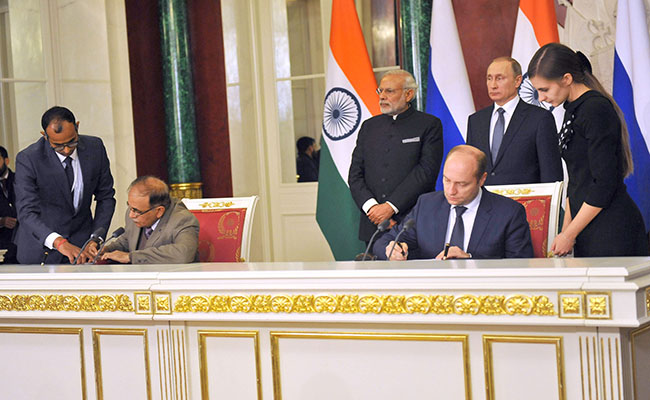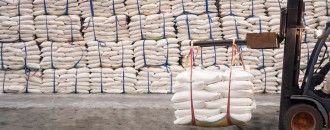
Modi’s Russia visit expands scope of bilateral ties
 With its decision to build 12 nuclear reactor plants in India, Russia - one of the largest nuclear powers in the world - is poised to be India’s biggest partner in its indigenous nuclear programme
With its decision to build 12 nuclear reactor plants in India, Russia - one of the largest nuclear powers in the world - is poised to be India’s biggest partner in its indigenous nuclear programmeIndia sees Russia as a significant partner in its economic transformation, Prime Minister Narendra Modi said in Moscow on December 24, as the two time-tested partners signed 16 bilateral agreements in areas ranging from nuclear energy and defence to hydrocarbon, trade and investments. “I see Russia as a significant partner in India’s economic transformation and in shaping a balanced, stable, inclusive, and a multi-polar world,” Modi said. As part of the pacts, Russia has agreed to jointly manufacture 226 military helicopters and construct 12 atomic plants in India under the “Make in India” initiative, thereby becoming the first country to partner India in its indigenous civil nuclear and defence sectors under the government’s flagship manufacturing programme. With its decision to build 12 nuclear reactor plants in India, Russia – one of the largest nuclear powers in the world – is poised to be India’s biggest partner in its indigenous nuclear programme. “The inter-governmental agreement on manufacture of Kamov 226 helicopter in India is the first project for a major defence platform under the Make in India mission. It is rightly with our most important defence partner,” the Prime Minister said. Russia has also announced a new range of reactor units for the third and fourth plants of the Kudankulam project in Tamil Nadu, for which negotiations are already underway and likely to be completed within four years. To complete this project, Russia’s state-owned nuclear utility Rosatom and India’s Department of Atomic Energy have finalised the programme of action during Modi’s visit to Moscow. In addition, Russia has also emphasised on involving India in building Russian-designed nuclear facilities – which will include cooperation in joint extraction of natural uranium, production of nuclear fuel and elimination of atomic waster – in third countries. The Russian oil giant Rosneft also signed an MoU with Oil India and Indian Oil Corporation to cooperate in the fields of geologic survey, exploration and production of hydrocarbons, during the Prime Minister’s visit to Moscow. During his two-day trip to Russia, Modi and Russian President Vladimir Putin also held a business summit, which was attended by business leaders from the two nations. The two leaders noted that India's participation as a partner country in the International Industrial Exhibition INNOPROM 2016 and Russia’s involvement as a partner country in India Engineering Sourcing Show 2017 could spur a fresh wave of growth in the field of industry, scientific and technological innovations. The two countries also signed agreements on combating customs violations in 2015 – 2017, technical cooperation in railway sector, construction of solar energy plants in India, heavy engineering design at HEC and upgradation and modernisation of HEC’s manufacturing facilities in India. The Prime Minister’s visit to Moscow came at a time when the United States and the European Union have decided to impose trade restrictions on Russia following Russia’s last year invasion of Crimea and aggression in eastern Ukraine. The fresh round of sanction prevents some of the Russian largest companies from raising capital in the West, restrict technological exports and technical services for oil and gas drilling, and freeze travel and assets Russian elites.
December 26, 2015 | 04:00pm IST






 to success.
to success.